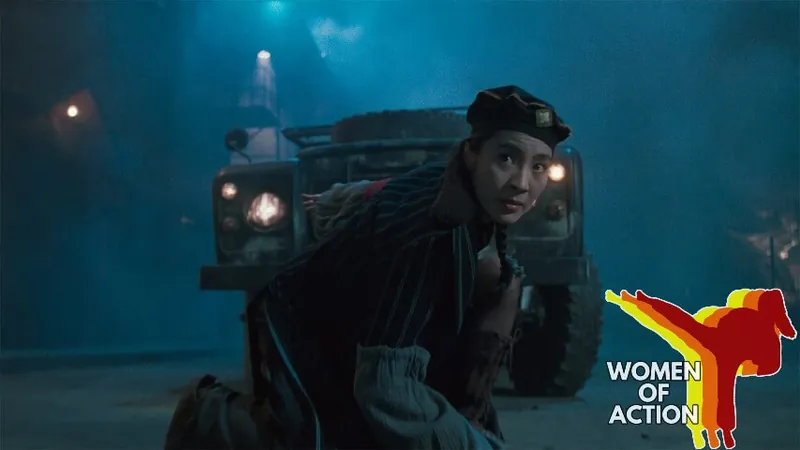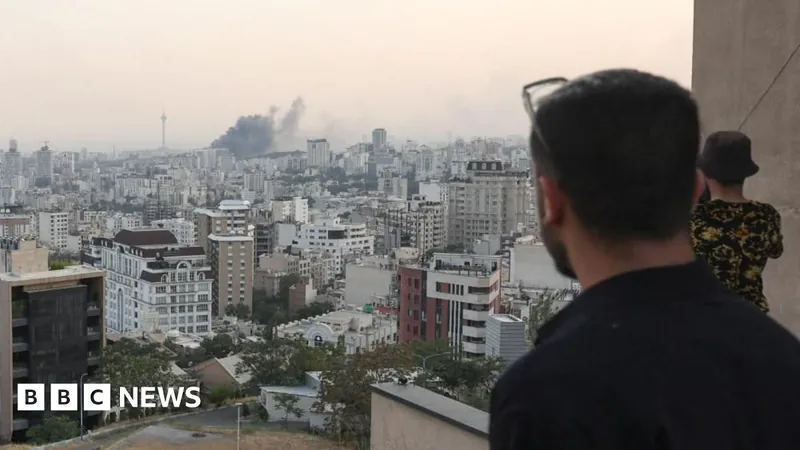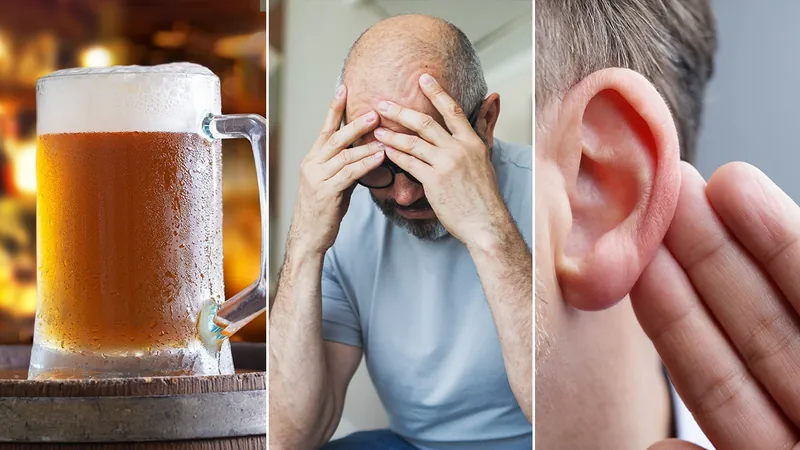
The Rise of Michelle Yeoh: Tracing the Icon's Early Days in Hong Kong Cinema
2025-01-20
Author: Ling
Introduction
In an era where action films are often dominated by male leads, Michelle Yeoh has dazzled audiences worldwide as a groundbreaking female action star. While American viewers may have recognized her in iconic roles such as the Bond girl in 'Tomorrow Never Dies' or the heartfelt characters in films like 'Crazy Rich Asians,' Yeoh's journey began much earlier, in the vibrant heart of Hong Kong's film industry.
Early Career
Before she became an Oscar-winning actress at the age of 62 for her mesmerizing performance in 'Everything Everywhere All At Once,' Michelle Yeoh was already making waves in martial arts cinema. In the span of 13 years, she starred in 18 films, exploring various subgenres of action in Hong Kong. Surprisingly, despite her fluid martial arts movements on screen, she had no formal training in martial arts; her background lies in ballet, a discipline she practiced from the age of four until a spinal injury redirected her career path.
From Beauty Queen to Action Star
Yeoh's entry into the entertainment world began with a successful stint in beauty pageants, culminating in her victory at the Miss Malaysia World competition in 1983. This led to her first significant break in the industry—a watch commercial alongside none other than Jackie Chan. This small spark ignited a legendary career, as she soon found herself stepping into the action-packed world of Hong Kong films.
The Evolution of Hong Kong Cinema
The Hong Kong film landscape evolved dramatically during the 1970s and 1990s, significantly shaped by the kung fu craze sparked by Bruce Lee. Though the industry was largely dominated by male stars, women held a more prominent position within this vibrant cinematic culture. In fact, early female action heroes like Cheng Pei-pei, the star of the 1966 classic 'Come Drink with Me,' laid a foundation for the progressive roles that Yeoh would later redefine.
The Rise of Michelle Khan
With her cast name changed to 'Michelle Khan' by D&B Films, Yeoh quickly adapted to the fast-paced world of Hong Kong cinema. The production company trained her in Cantonese and cast her as the love interest in Sammo Hung's 1984 film 'The Owl Vs Bombo.' Little did they know, this would be the beginning of a remarkable evolution for the actress, who would soon emerge as a leading figure in action cinema.
Breakthrough Role
Her breakout role arrived in 'Yes, Madam,' a film that also featured American martial arts star Cynthia Rothrock, further solidifying the 'girls with guns' trend within the genre. Yeoh's dedication to mastering fight choreography paid off, captivating audiences with her stunning on-screen presence and dynamic fight sequences. This momentum continued with her role in 'Royal Warriors,' showcasing her ability to seamlessly blend gritty action with moments of levity.
Personal Challenges and Comeback
As her profile grew, Yeoh faced a momentous yet challenging decision: after marrying Hong Kong businessman Dickson Poon, she briefly stepped away from acting. However, the call of the silver screen proved irresistible, and she made a triumphant return in 'Police Story 3: Supercop,' where her fierce chemistry with Jackie Chan solidified her reputation as a leading lady in action films.
Versatility in Various Genres
Throughout her early career, Michelle Yeoh demonstrated extraordinary versatility, navigating various film genres—from the traditional martial arts films to the quirky and light-hearted comedies, such as 'Magnificent Warriors' and the superhero flick 'The Heroic Trio.' Her ability to merge elements of traditional Hong Kong cinema with a playful spirit set her apart from many of her contemporaries.
Impact on Representation
Yeoh’s accomplishments would eventually pave the way for wider representation of women in action roles, a quality that was painfully absent in many Western films. Long before 'Wonder Woman' hit theaters or the Marvel Cinematic Universe expanded, Yeoh was crafting a space for fierce female characters who could stand alongside their male counterparts, resulting in a richer fabric of storytelling in action cinema.
International Recognition
With the release of 'Crouching Tiger, Hidden Dragon' in 2000, Yeoh brought her experience and charisma to the international stage, promoting a new genre of cinema known as 'wife fu,' which celebrated complex female protagonists. Even after transitioning to Hollywood, she continued to maintain her roots in Hong Kong cinema.
Legacy and Conclusion
Her contributions have not only redefined the role of women in action films but have also highlighted the challenges and triumphs of the human experience. As she continues to astound audiences in both Eastern and Western cinema, Michelle Yeoh remains a testament to the artistry and resilience that has made her an icon over the years—a true cinematic badass whose legacy is just beginning.



 Brasil (PT)
Brasil (PT)
 Canada (EN)
Canada (EN)
 Chile (ES)
Chile (ES)
 Česko (CS)
Česko (CS)
 대한민국 (KO)
대한민국 (KO)
 España (ES)
España (ES)
 France (FR)
France (FR)
 Hong Kong (EN)
Hong Kong (EN)
 Italia (IT)
Italia (IT)
 日本 (JA)
日本 (JA)
 Magyarország (HU)
Magyarország (HU)
 Norge (NO)
Norge (NO)
 Polska (PL)
Polska (PL)
 Schweiz (DE)
Schweiz (DE)
 Singapore (EN)
Singapore (EN)
 Sverige (SV)
Sverige (SV)
 Suomi (FI)
Suomi (FI)
 Türkiye (TR)
Türkiye (TR)
 الإمارات العربية المتحدة (AR)
الإمارات العربية المتحدة (AR)